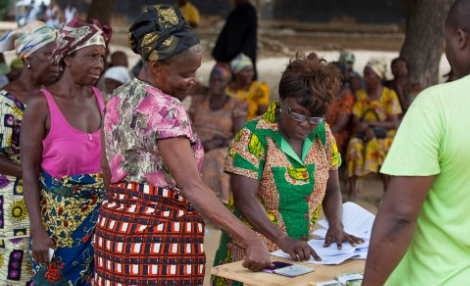The Minister for Finance, Dr. Mohammed Amin Adam has disclosed that the government has allocated GHS5.4 billion to bolster the Livelihood Empowerment Against Poverty (LEAP) programme, the National Health Insurance Scheme (NHIS), and the school feeding initiative.
“To reduce the burden on the vulnerable, we have disbursed GH¢5.4 billion to support LEAP, School Feeding programme, Capitation Grant and NHIS since January, 2024,” the Minister disclosed during the mid-year budget review presented to Parliament on July 23, 2024.
During his presentation to Parliament, Dr. Adam emphasized the government’s unwavering commitment to enhancing the quality of life for all Ghanaians, particularly the nation’s most vulnerable populations. He stated that the substantial disbursement reflects government’s determination to provide essential social services and support.
A significant portion of these funds will be directed towards the LEAP program, which provides cash transfers to the poorest households in the country. Over the years, LEAP has been a crucial tool in alleviating poverty and improving living standards. The additional funding is expected to expand the programme’s reach, enabling more households to benefit from this vital support.
The school feeding programme, designed to improve the nutritional status of children in public basic schools, will also receive a significant boost. Proper nutrition is critical for children’s physical and cognitive development, directly influencing their educational performance and overall well-being. By enhancing the school feeding programme, the government aims to combat child hunger and promote better educational outcomes across the country.
In addition, the National Health Insurance Scheme (NHIS) will benefit from the new funding. The NHIS is a cornerstone of Ghana’s healthcare system, providing essential health services to millions of citizens. With this infusion of funds, the government aims to strengthen the scheme, ensuring that more people can access quality healthcare without facing financial hardship.
The Finance Minister highlighted the broader economic context within which these social investments are being made. Despite the challenges posed by global economic uncertainties, he said government remains committed to prudent fiscal management and strategic investments in social infrastructure. Dr. Adam acknowledged the economic difficulties but stressed the importance of maintaining fiscal discipline while investing in programs that foster inclusive growth and build a resilient economy.
Dr. Adam also shared positive developments in the country’s economic performance, noting that Ghana’s economy grew by 4.7% in the first quarter of the year, surpassing initial projections. This growth, he attributed, was due to effective policy measures and robust economic management.
The Minister also highlighted the progress made in stabilizing inflation and the exchange rate, which has brought relief to businesses and households. Improvements in these areas are critical for maintaining economic stability and creating a conducive environment for investment and growth.
Summarizing the government’s approach, Dr. Adam said, “Despite the global economic headwinds, our government remains steadfast in its commitment to fiscal discipline and social investment. We believe that strategic spending in social protection programs is crucial for fostering inclusive growth and building a resilient economy.”




